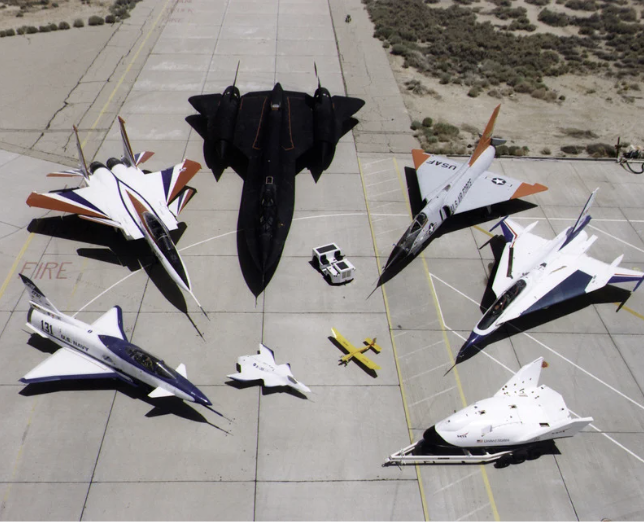Revolutionizing Aircraft Production and Maintenance
The aerospace industry, encompassing both commercial and defense sectors, is experiencing a technological revolution through the integration of Artificial Intelligence (AI). AI technologies are enhancing aircraft design, streamlining production processes, and improving maintenance protocols. This exploration delves into how AI is propelling aerospace manufacturing toward unprecedented levels of efficiency and innovation, supported by real examples and statistics.
AI in Aerospace Design and Simulation
AI is significantly impacting aerospace design, allowing engineers to simulate and test aircraft performance under various conditions without physical prototypes.

Example: Airbus Airbus uses AI to optimize aircraft design, focusing on reducing drag and improving fuel efficiency. Their AI-driven tools simulate thousands of flight scenarios to identify optimal wing shapes and engine configurations, leading to a 5% reduction in fuel consumption on their latest models.
Example: Boeing Boeing employs AI for stress testing on aircraft components. Their AI algorithms predict how parts will perform under extreme conditions, improving safety margins. This method has reduced testing time by 40% and increased the accuracy of safety assessments by 30%.
Automating Production Lines
AI robots are revolutionizing aerospace manufacturing floors, performing complex assembly tasks with precision and efficiency.

Example: Spirit AeroSystems Spirit AeroSystems uses AI-driven robots to install fuselage panels on commercial aircraft. This automation has boosted production speeds by 25% and improved build accuracy, reducing waste and rework rates by over 15%.
Example: Lockheed Martin Lockheed Martin integrates AI in the production of F-35 fighter jets, using autonomous robots to paint aircraft and install over 30,000 fasteners per jet. This has streamlined production processes, cutting down assembly time by 20% and lowering labor costs by 10%.
Predictive Maintenance in Aerospace
AI enhances aircraft maintenance, predicting when parts might fail and scheduling maintenance before breakdowns occur, thus ensuring higher aircraft availability and safety.
Example: GE Aviation GE Aviation’s AI-powered predictive maintenance tools analyze engine data in real time to forecast wear and tear. These insights have helped airlines reduce unplanned maintenance by up to 25%, significantly lowering downtime and maintenance costs.
Example: Rolls-Royce Rolls-Royce’s Engine Health Management system uses AI to monitor engine performance across its fleet. The system provides real-time diagnostics that prevent approximately 600 unscheduled engine removals annually, saving millions in operational costs.
PeakMet’s Contributions to Aerospace AI Solutions

PeakMet offers AI and machine learning solutions tailored for the aerospace industry, enhancing design simulation, production efficiency, and predictive maintenance. Their tools help manufacturers optimize workflows and predict maintenance needs with high accuracy, ensuring cost-effective operations and prolonged asset life.
Challenges and Future Directions
Integrating AI in aerospace manufacturing involves challenges, including the high costs of AI implementation, the complexity of training AI systems in high-stakes environments, and regulatory hurdles. Additionally, there’s the critical need to maintain stringent safety and quality standards, which requires that AI systems not only complement but also exceed current human capabilities in risk assessment and problem-solving.
Conclusion: A New Horizon for Aerospace with AI

AI’s role in transforming aerospace manufacturing is profound and growing. By enhancing design, automating production, and improving maintenance protocols, AI is helping the industry achieve new levels of safety, efficiency, and sustainability. As AI technologies continue to evolve, their integration into aerospace operations will likely deepen, promising even more significant innovations in the ways we build and maintain the aircraft of the future. With companies like PeakMet at the forefront, the aerospace sector is well-positioned to harness the full potential of AI advancements.


